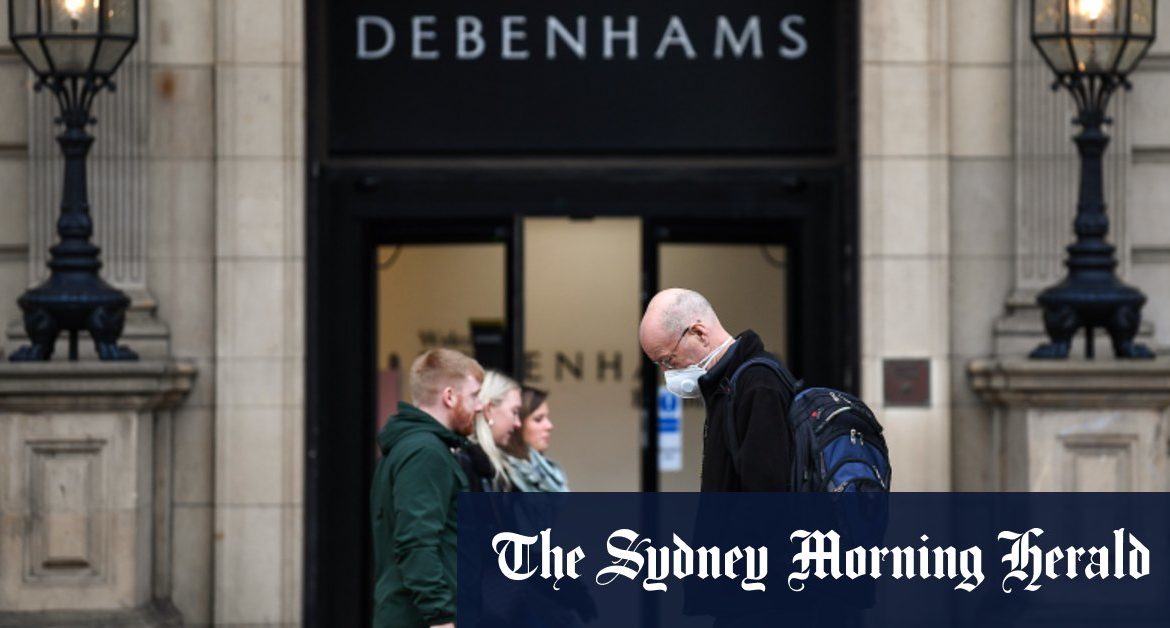For Debenhams, the reopening of its 124 UK stores is not expected to last long even though the administrators said they will continue to seek offers “for all or parts of the business” while they start selling off stock and liquidating the business.
Arcadia’s stable of brands, which includes the likes of Burton, Miss Selfridge and Topshop, could still have a future and administrators are seeking buyers for all or parts of the company.
Retail experts said the pandemic and the associated restrictions only tell part of the problems that the companies have encountered. Both have struggled to respond to the increased competition from low-cost rivals like Primark, as well as from online disruptors such as ASOS and Boohoo.
It looks like a sad end for Debenhams, which can trace its history back to 1778 when William Clark set up a store in London’s West End selling fabrics, bonnets, gloves and parasols. In 1813 William Debenham invested in the firm, which became Clark & Debenham. By 1950, the renamed Debenhams was one of the largest department store groups in the UK.
Retail chain JD Sports had been mulling an offer for Debenhams but pulled out after Arcadia said it was going into administration. Arcadia is the biggest operator of concessions in Debenhams department stores, so its potential collapse affected Debenhams’ appeal.
Debenhams, which went into administration in April, has already axed 6500 jobs. It said it will continue to trade both in-shop and online to clear its current and contracted stocks.
“On conclusion of this process, if no alternative offers have been received, the UK operations will close,” the company said in a statement.
Geoff Rowley of FRP Advisory, which is joint administrator for Debenhams, said “the economic landscape is extremely challenging and, coupled with the uncertainty facing the UK retail industry, a viable deal could not be reached”.
Around 12 hours earlier, Arcadia called in administrators from Deloitte. It said the forced closure of its stores over long periods this year had “severely impacted” on trading.
As well as suffering from the pandemic, critics have said the 68-year-old Green, who has been embroiled in a series of controversies over the past few years, hasn’t invested enough in the businesses to get them in shape to deal with new, nimbler online competitors.
“Arcadia has suffered against these emerging players because the company was slow to develop an innovative and user-friendly online offering as well as a strong brand narrative and social media presence,” said Nina Marston, fashion and luxury analyst at Euromonitor International.
Loading
Unlike Debenhams, there are hopes that something can be salvaged from Arcadia and Deloitte’s Matt Smith said he expects “to identify one or more buyers to ensure the future success of the businesses”.
Arcadia, like Debenhams, has a long history, tracing its roots back to the early 1900s, when 18-year-old Lithuanian émigré, Montague Burton, arrived in Britain. Brands were added to the Burton menswear business before the umbrella company Arcadia was formed in 1997.
Green took over the company in 2002 and in the first few years, his stewardship won him admirers, helping his brands to link up with the likes of supermodel Kate Moss and singer Beyonce.
AP
Business Briefing
Start the day with major stories, exclusive coverage and expert opinion from our leading business journalists delivered to your inbox. Sign up for the Herald‘s here and The Age‘s here.
Most Viewed in Business
Loading







